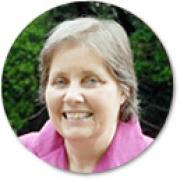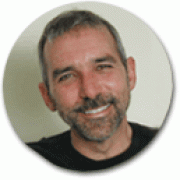The Family Acceptance Project® (FAP) is funded by a growing family of individual donors, agencies and visionary foundations including The California Endowment, the Annie E. Casey Foundation and by a matching grant by the Robert Wood Johnson Foundation.
Although there is an increasing amount of information about the risks and challenges facing lesbian, gay and bisexual (LGB) youth with growing information about transgender children and youth, we know far less about their strengths and resiliency, including the strengths of families in supporting their children's health and well-being. Even though the family is the primary support for children and youth, and family involvement helps reduce adolescent risk, there had been no previous comprehensive studies of how parental, caregiver and family reactions contribute to their lesbian, gay, bisexual, and transgender (LGBTQ) children’s risk and well-being. Prior to this study, little information was available to show how families respond to learning about a child or adolescent's LGBTQ identity and how family and caregiver reactions contribute to health, mental health and development for LGBTQ young people.
Attention to family reactions is critical since increasingly, children and youth are self-identifying at younger ages which significantly increases risk for victimization and stress in family, school and community settings, and provides opportunities for helping to support and strengthen families. Victimization has long-term consequences for health and development, and impacts families as well as the targeted individuals. Early intervention can help families and caregivers build on strengths and use evidence-based materials to understand the impact of acceptance and rejection on their child’s well-being.
The Family Acceptance Project® (FAP) is directed by Dr. Caitlin Ryan at the Marian Wright Edelman Institute at San Francisco State University, and was developed by Caitlin Ryan and Rafael Dìaz in 2002. It includes the first comprehensive study of LGBTQ youth and their families and the first evidence-informed family support model to help diverse families learn to support their LGBTQ children.
The project was designed to:
- Study parents’, families' and caregivers’ reactions and adjustment to an adolescent's coming out and LGBTQ identity.
- Develop research-based education, training and assessment materials for health, mental health, and school-based providers, child welfare, juvenile justice, family service workers, clergy and religious leaders, parents and caregivers on helping diverse families learn to support their LGBTQ children.
- Develop resources to strengthen families to support LGBTQ children and adolescents.
- Develop a new model of family-related care to prevent health and mental health risks, keep families together and promote permanency and well-being for LGBTQ children and adolescents. Findings are being used to inform policy and practice and to change the way that systems of care address the needs of LGBTQ children and adolescents.
FAP collaborated with Child and Adolescent Services at San Francisco General Hospital/University of California, San Francisco (UCSF), and with community providers to develop a new family-oriented model of wellness, prevention and care for LGBTQ children and adolescents, based on our research. This new family-related approach helps ethnically, racially and religiously diverse families to decrease rejection and increase support to prevent risk and promote their LGBTQ children's well-being. We provide training on our family intervention approach and using our research-based resources to providers, families and religious leaders across the United States and in other countries. We are currently implementing FAP's family support model in collaboration with several agencies and communities around the country.
Staff

Caitlin Ryan, Director
Caitlin Ryan is the director of the Family Acceptance Project® — a research, education, intervention and policy project – to help ethnically, racially and religiously diverse families to support their LGBTQ children. Dr. Ryan is a clinical social worker, researcher and educator who has worked on lesbian, gay, bisexual, and transgender (LGBTQ) health and mental health for more than 40 years and whose work on LGBTQ health has shaped policy and practice for LGBTQ and gender diverse children and youth. She received her clinical training with children and adolescents at Smith College School for Social Work. Dr. Ryan pioneered community-based AIDS services at the beginning of the epidemic; initiated the first major study to identify lesbian health needs in the early 1980s; and has worked to reduce risk and promote well-being for LGBTQ youth since the early 1990s. She started the Family Acceptance Project with Dr. Rafael Diaz in 2002 to help diverse families to decrease rejection and prevent related health risks for their LGBT children — including suicide, drug use, homelessness and HIV - and to promote family acceptance and positive outcomes including permanency.
Dr. Ryan and her team have developed the first evidence-informed family support model and a range of research-based materials and assessment tools to help families and caregivers to support their LGBT children, including Best Practice resources for suicide prevention and a series of short documentary films that show the journey from struggle to support of diverse families with LGBT children. Dr. Ryan is implementing FAP’s family support model in behavioral health, family preservation, out-of-home care, including foster care, school-based care and pastoral care, and has integrated core FAP components into Trauma-Focused Cognitive Behavioral Therapy (TF-CBT). She has provided education and training for on this work more than 92,000 families, providers and religious leaders across the U.S. and in other countries. Dr. Ryan’s work has been recognized by many national professional groups in the fields of counseling, medicine, nursing, psychiatry, psychology and social work, and by civic, LGBTQ, advocacy, arts and faith-based groups. She has served on many national advisory groups including the Committee on LGBT Health for the Institute of Medicine, National Academy of Sciences and the LGBT Suicide Prevention Task Force of the National Action Alliance for Suicide Prevention. Dr. Ryan works with organizations, faith communities, families and providers to integrate FAP’s family-based support approach to build healthy futures for LGBTQ children, youth and young adults across disciplines, services and systems.

Rafael Dìaz, Consultant
Rafael Dìaz provides consultation for The Family Acceptance Project® (FAP) on analysis and research methods. Dr. Diaz is a clinical social worker, a developmental and a clinical psychologist with post-doctoral training at The Center for AIDS Prevention Studies (CAPS), at the University of California San Francisco (UCSF). He was a faculty member at the University of New Mexico, Stanford University, and UCSF's CAPS program where he began his work on Latino gay men and HIV. Dr. Diaz was a Professor of Ethnic Studies at San Francisco State University (SF State) and is the former director of the César E. Chávez Institute at SF State. His research includes major studies on Latino gay men, sexuality, substance use and mental health, including two 4-year studies "A Sociocultural Model of human immunodeficiency virus (HIV) Risk in Latino Gay Men," using qualitative, quantitative and intervention design methods in Los Angeles, Miami and New York, and "Drug Use and Risky Sexual Behavior in Latino Gay Men" and a 5-year study of community involvement as a protective factor for HIV infection among Latino gay men.
Dr. Diaz initiated the Family Acceptance Project® with Caitlin Ryan in 2002 to undertake the first study of how family reactions affect the health, mental health and well-being of lesbian, gay, bisexual and transgender youth. He has written extensively on bilingualism, self-regulation, Latino gay men, sexuality and culture. His book, “Latino Gay Men and HIV: Culture, Sexuality, & Risk Behavior,” has become the guiding framework for developing HIV prevention interventions with gay men of color.